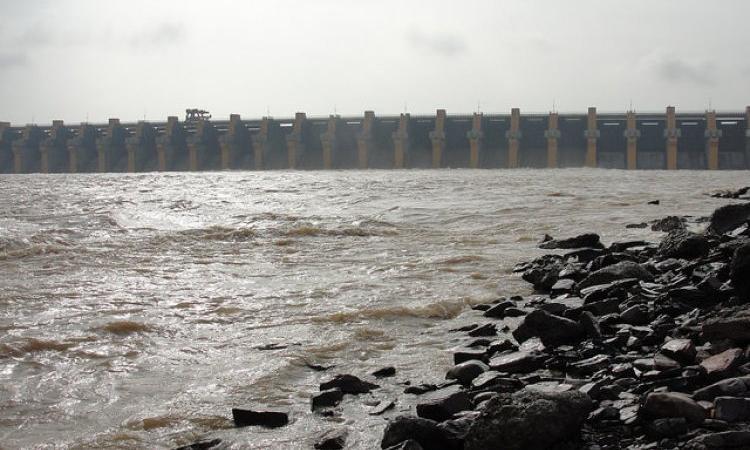
Even before the monsoon sets in, collective stock in 130 major reservoirs 27 percent of total capacity
The collective stock in the 130 reservoirs monitored by the Central Water Commission was 27 percent of the total live storage capacity, which is well over the average storage for this time of the year.
Of the 130 reservoirs, 49 have more water than they had stored in June 2020 while two large dams — Hariharjhore in Odisha and Ujjani in Maharashtra — have reached dead stock. Stocks are above normal in the basins of the Ganga, Narmada, Tapi, rivers of Kutch, Krishna, Mahanadi and Cauvery while the Mahi river basin has normal reserves and Indus has deficient reserves.
Cooler summers owing to frequent thunderstorms and widespread rainfall from cyclone Tauktae and Yaas are the factors that contributed to the stocking of these reservoirs. (The Indian Express)
A village in Sundarbans is planting mangroves to protect against cyclones
Cyclone Yaas had a strong impact in several coastal villages in the Sundarbans in West Bengal except for a low-lying village, Jharkhali, in South 24 Parganas district of West Bengal. Despite being cyclone -prone and surrounded by three sides with rivers Matla, Bidyadhari and Herobhanga, the village stayed safe from Yaas.
This was because of the mangrove saplings that the villagers of Jharkhali have grown at the embankment as a coping mechanism against cyclones and tidal waves. Around 300,000 mangrove saplings have been planted here since 2017 with the help of the women of Jharkhali Sabuj Bahini, an NGO formed in June 2005 and a visually challenged individual, Akul Biswas. (Mongabay India)
Tackling climate change and biodiversity loss must go hand-in-hand: UN Report
According to a joint report from the Intergovernmental Panel on Climate Change (IPCC) and the Intergovernmental Science-Policy Platform on Biodiversity and Ecosystem Services (IPBES), efforts to conserve biodiversity and climate change should be tackled together as they are often been addressed independently of each other. The UN-backed report, which came together through a four-day virtual workshop with 50 or the world’s top biodiversity and climate experts, outlines several strategies that could simultaneously address the two global issues. The report stressed on the need to protect and restore high-carbon ecosystems like tropical forests and peatlands. The report also warns against climate change mitigation strategies, technological solutions, badly planned tree-planting programs and an over-reliance on energy production, that can be harmful to biodiversity. (Cosmos))
Odisha villagers stand against Nalco’s new red mud pond
Over 600 locals in Dengajaniguda village under Dasamantpur block of Koraput district are not allowing the revenue officials from identifying land near their village for construction of Nalco’s second red mud pond. Nalco built its first pond in 1986. As per the villagers, the toxic waste from the red mud or bauxite residue pond would render their fields unsuitable for agriculture while causing diseases.
Fearing the effects of the proposed pond which is only 200 metres from the village, the villagers informed that the toxic chemicals leaching from first red mud pond which is two kms away from the village has destroyed their farmland, natural stream, nullahs and caused health issues to villagers. Moreover, the villagers have gained nothing from Nalco’s alumina refinery like the construction of a high school or employment for youth. (Hindustan Times)
UN’s Land for Life Award goes to Indian climate activist
Shyam Sundar Jyani, a Rajasthan-based climate activist, has won this year’s prestigious United Nations' Land for Life Award for his Familial Forestry. The UN Convention to Combat Desertification (UNCCD) praised his unique concept of relating a tree with a family and making it a green family member. The UNCCD chose Jyani for the Land for Life Award 2021 among 12 shortlisted candidates across the globe. Familial Forestry has encouraged the students and desert dwellers to actively participate in making trees a part of the family’s consciousness. In past 15 years, more than a million families from over 15,000 villages of desert-prone northwest Rajasthan have planted over 2.5 million saplings. (India Today)
This is a roundup of important news published from June 8 - 21, 2021. Also read policy matters this fortnight.
/articles/it-june-and-49-130-major-reservoirs-are-brimming-water